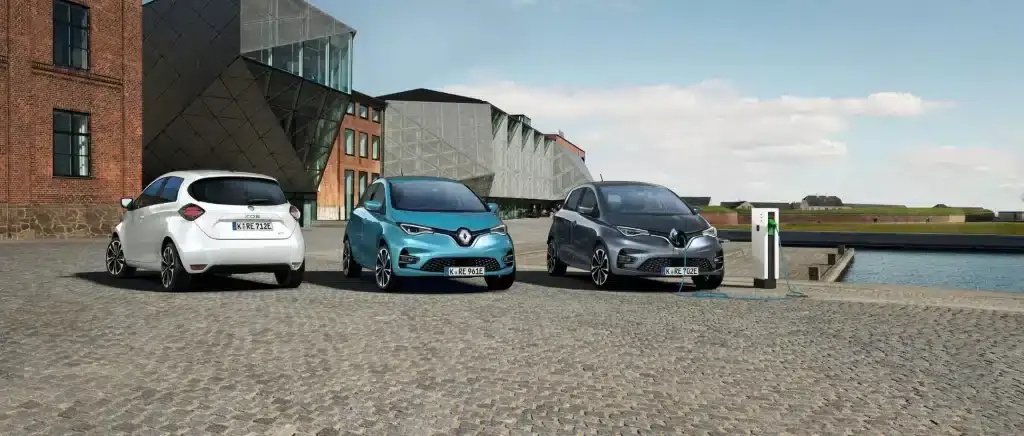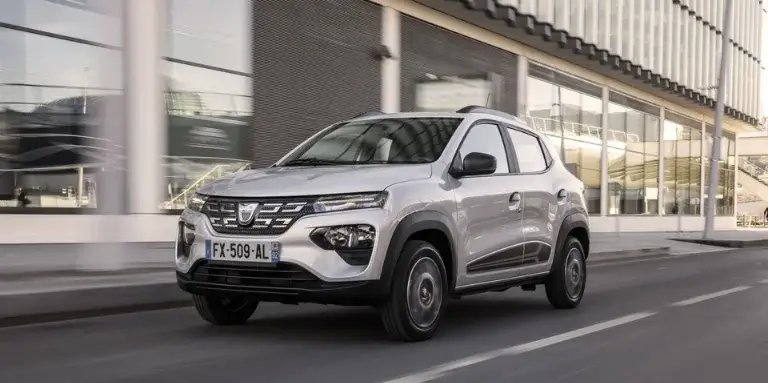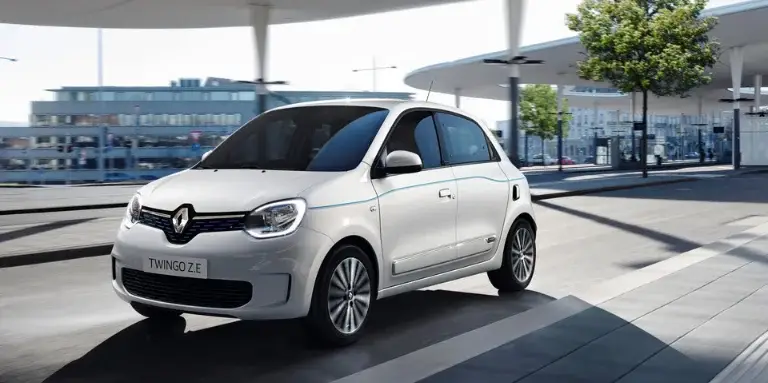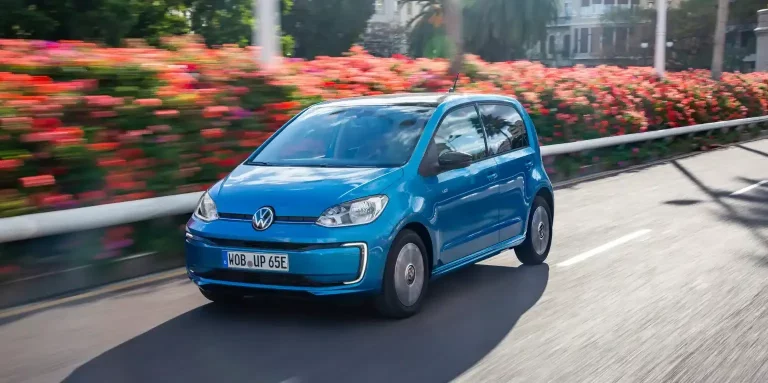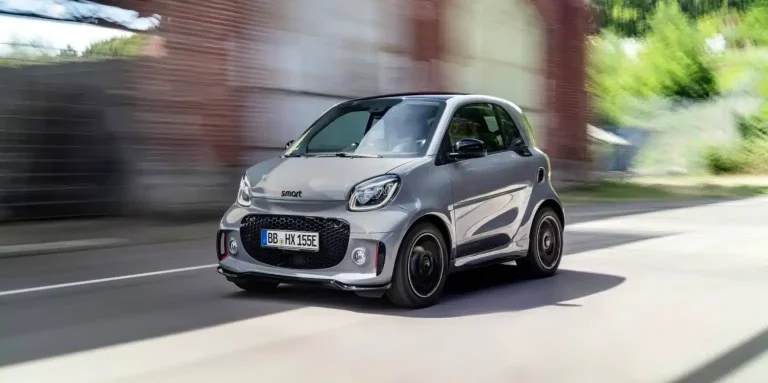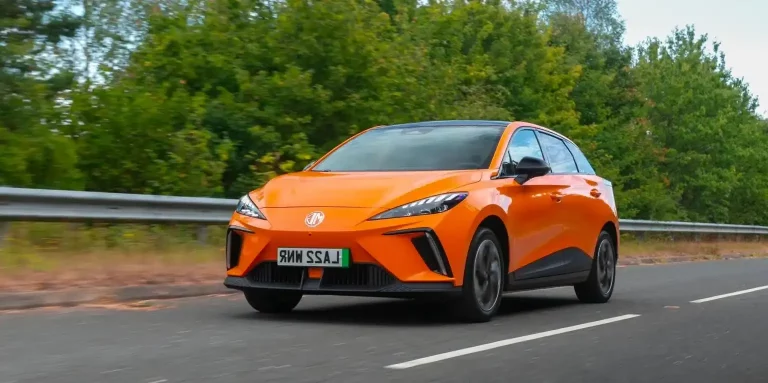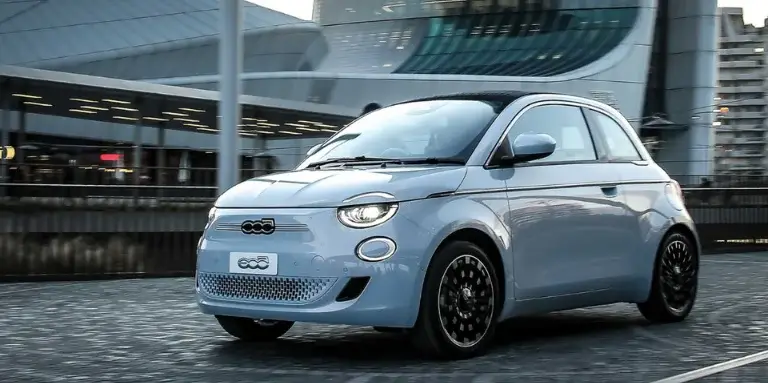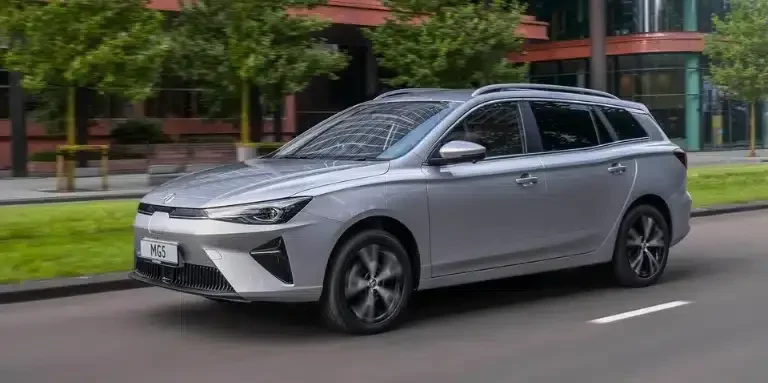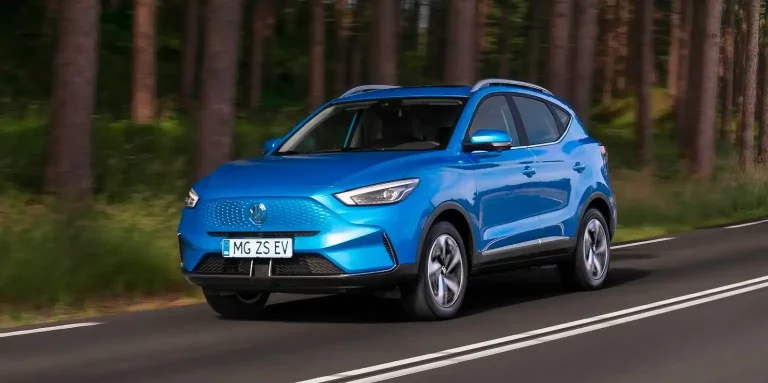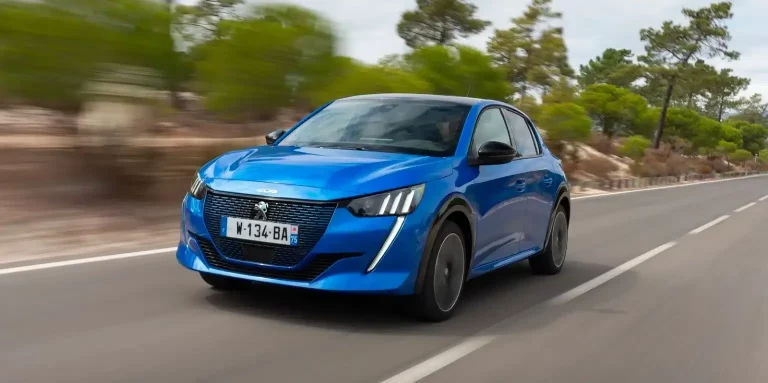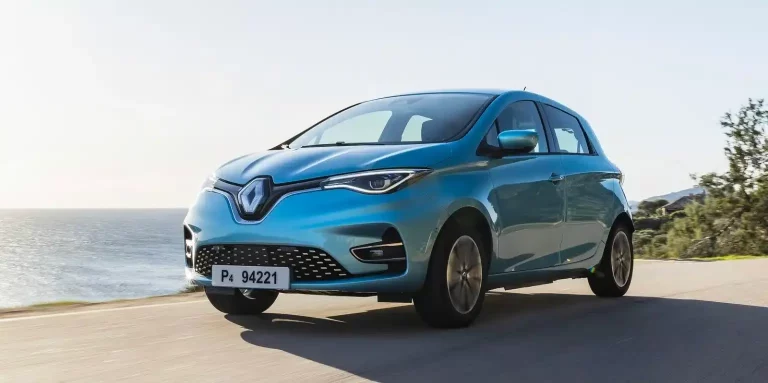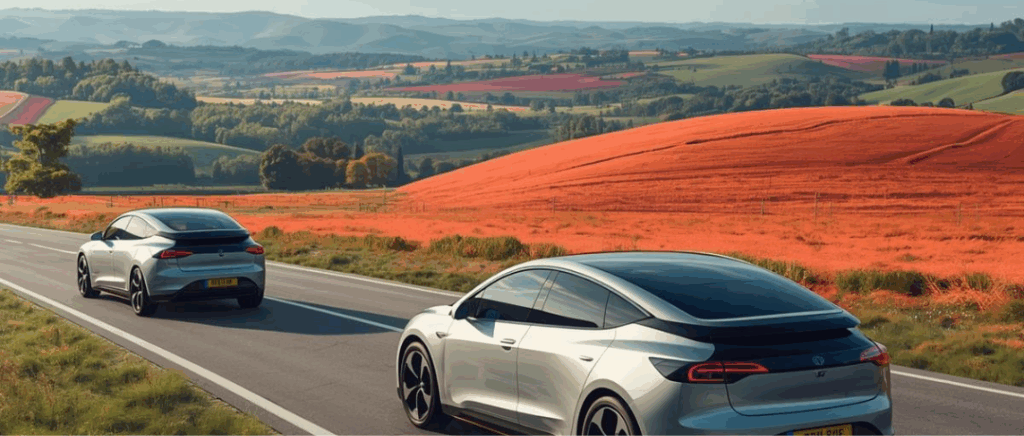Discover our new must-have guide :
Of course, the electric vehicle market offers us a wide choice in terms of models. electric cars and this is only set to increase over the next few years, much to our delight. Before you make your choice about the electric car of your dreams, we'd like to give you a brief overview. top 10 cheapest electric cars on the market.
We have also written a number of articles about best electric city carsthe best 5-seater electric cars and 7 seats. We suggest you take a look if you're interested!
What's more, we're going to give you all the most important information about the following cars: performance, autonomy, recharge...
Summary table of the cheapest electric cars in 2023
Need an overview of the cheapest electric cars? Here's a table showing all the electric cars listed above, together with their price after deduction of the environmental bonus.
However, while the number of electric cars is increasing, at first sight they are still more expensive than their internal combustion counterparts. In addition to government financial support for the purchase of an electric car, some models are still trying to offer more affordable prices. Take a look at our top 10 cheapest electric cars in 2023.
| Modèle de voiture | Prix catalogue |
Après déduction du bonus écologique (7 000 €) |
Autonomie |
|---|---|---|---|
|
Dacia Spring
|
20 800 €
|
13 800 €
|
230 km
|
|
Renault Twingo E-Tech
|
25 250 €
|
18 250 €
|
190 km
|
|
Volkswagen e-UP
|
28 030 €
|
21 030 €
|
258 km
|
|
Smart EQ Fortwo Coupé
|
28 350 €
|
21 350 €
|
135 km
|
|
MG 4
|
29 990 €
|
22 990 €
|
350 km
|
|
Fiat 500e Hatchback 24 kWh
|
30 400 €
|
23 400 €
|
190 km
|
|
MG 5
|
32 990 €
|
25 990 €
|
320 km
|
|
MG ZS EV
|
33 990 €
|
26 990 €
|
320 km
|
|
Peugeot e-208
|
34 800 €
|
27 800 €
|
400 km
|
|
Renault Zoe e-Tech
|
35 100 €
|
28 100 €
|
395 km
|
Ranking of cheap electric cars in 2023
1. Dacia Spring: from €20,800
Dacia electric is entering the electric car market and shaking up the competition with a starting price of €20,800 and a range of 230 km according to the WLTP standard for its Dacia Spring. However, its power output of 33 kW (45 bhp) is a limitation on the motorway or national highway network. It is currently the cheapest electric car on the French market. This electric car is also available in the Extreme 65 version, with a more powerful engine (65 bhp) for just €22,300.
- Autonomy : 230 km (WLTP)
- Price : 20,800 (excluding environmental bonus)
- Slow recharge (0 to 100 %) : 4h50 min
- Fast recharge (10 to 80 %) : 38 min
2. Renault Twingo E-Tech: from €25,250
The little electric city car by Renault takes first place on the podium. With the environmental bonus deducted, it costs €25,250 (€18,250 if your reference tax income is less than or equal to €14,089. If your reference tax income is greater than €14,089, the Twingo E-Tech will cost €20,250), a very attractive price for an electric car. It's the cheapest electric car on the market. manufacturer Renault.
With a battery 22 kW, giving it a range of 190 km. Renault Twingo E-Tech is 3.61 m long and is available in three versions: Authentic, Equilibre and Techno.
- Autonomy : 190 km (WLTP)
- Price : 25,250 (excluding environmental bonus)
- Slow recharge (0 to 100 %) : 3h30 min
- Fast recharge (0 to 80 %) : 1h15 min
3. Volkswagen e-UP: from €28,080
Discover the new generation of Volkswagen e-UPVolkswagen's new electric car offers you a new level of comfort and a new way of driving. Volkswagen's cheapest electric car will accompany you on your daily commute.
- Autonomy : 258 km (WLTP)
- Price : 28,080 (excluding environmental bonus)
- Slow recharge (0 to 100 %) : 5h20
- Fast recharge (0 to 80 %) : 32 min
4. Smart EQ Fortwo Coupé: from €28,350
LaSmart EQ Fortwo electric Coupéis the first 100 % electric city car marketed bySmartin France.
In terms of performance, the Smart EQ Fortwo is rated at 60 kW (82 bhp), giving it a range of 135 km.
- Autonomy : 135 km (WLTP)
- Price : 28,350 (excluding environmental bonus)
- Slow recharge (0 to 100 %) : 4 h 30 min
- Fast recharge (0 to 80 %) : 55 min
5. MG 4: from €29,990
The manufacturerMG electric arrives in Europe with a Electric SUV at an unbeatable price. La MG4 becomes the cheapest electric car from the Chinese brand. There is an Extended Autonomy version with a range of 400 km for €33,990.
- Autonomy : 350 km (WLTP)
- Price : 29,990 (excluding environmental bonus)
- Slow recharge (0 to 100 %) : 8h50min
- Fast recharge (0 to 80 %) : 40 min
- Availability: immediate
6. Fiat 500e Hatch 24 kWh: from €30,400
La Fiat 500e is the first electric car from the Italian brand FiatToday, it is one of the cheapest electric cars on the market. For its switch to electric power, the city car has moved upmarket, breaking away from its popular, extravagant appearance with a chic silhouette. A version with a 42 kWh battery and a range of 331 km is available for €30,400.
- Autonomy : 190 km (WLTP)
- Price : 30,400 (excluding environmental bonus)
- Slow recharge (0 to 100 %) : 4h
- RFast charge (0 to 80 %) : 24 min
7. MG 5: from €32,990
MG's electric saloon will make all your journeys more than enjoyable. The MG 5 is a family car that combines comfort and technology, for a price of €32,990 (excluding environmental bonus). There is also an Extended Range version with a range of 400 km for €32,990.
- Autonomy : 320 km (WLTP)
- Price : 32,990 (excluding environmental bonus)
- Slow recharge (0 to 100 %) : 6h15
- Fast recharge (0 to 80 %) : 40 min
8. MG ZS EV: from €33,990
As you can see, MG has found its place in France by offering low-cost, high-performance 100 % electric cars. The MG ZS EV is a Electric SUV The 'Extended Range' version, priced at €33,990, offers up to 440 km of range in the WLTP cycle.
- Autonomy : 320 km (WLTP)
- Price : 33,990 (excluding environmental bonus)
- Slow recharge (0 to 100 %) : 8h
- Fast recharge (0 to 80 %) : 23 min
9. Peugeot e-208: from €34,800
La Peugeot e-208 is a compact electric car and elegant, offering a range of up to 400 km on a single charge. Take your place behind the wheel of an electric vehicle with a powerful, silent electric motor that offers a pleasant, environmentally-friendly driving experience.
- Autonomy : 400 km (WLTP)
- Price : 34,800 (excluding environmental bonus)
- Slow recharge (0 to 100 %) : 4h
- Fast recharge (0 to 80 %) : 30 minutes
10. Renault Zoe e-Tech: from €35,100
La Renault Zoe e-Tech is a electric city car car. The Zoe e-Tech is powered by a 135hp electric motor and can be recharged to 80 % in just one hour at a fast charging point. With its modern design and advanced technology, the Renault Zoe e-Tech is an attractive option for those looking for a electric car economical and practical.
- Autonomy : 395 km (WLTP)
- Price : 35,100 (excluding environmental bonus)
- Slow recharge (0 to 100 %) : 3h
- Fast recharge (0 to 80 %) : 56 min
That's it! That's our ranking of the cheapest electric cars on the market.
We hope you've been able to find the cheapest electric car that suits you best. When it comes to electric vehicles, choice is no longer a problem, as there are many models to choose from that have all the qualities you need in a car. And don't forget that you can benefit from the new environmental bonus and conversion premium for reduce the purchase price of your future electric vehicle.
Request your electric car offer
Cheapest electric car: why is it so expensive?
Today, each of the major groups in the automotive market has at least one 100 % electric vehicle in its range, with a few exceptions.
Firstly, instead of the internal combustion engine of a combustion engine car, which uses heat as energy, an electric car uses electricity.
One of the main obstacles to owning an electric vehicle for many future buyers is the price. It's true that when you look at list prices, electric vehicles are more expensive than their internal combustion equivalents, mainly because of their battery.
Read our article on price of an electric car battery.
However, it's not just the price on the vehicle that counts. Electric vehicles cost less to runfor example. Here are a few other reasons why an electric car is cheaper over the long term:
Charging an electric car
First things first: the recharge. To fill up, an electric car has to be plugged into a socket or an electrical outlet.electric charging point. Connection is via a cable fitted with appropriate connectors. There are several of these, depending on the charging method required. On average, there are around2 for 100 km.
Maintaining your electric vehicle
Next, let's move on to the interview.Maintain yourelectric caris less expensivecompared with a petrol car, for the simple reason that there are fewer parts. The average cost of servicing is estimated at €120. Knowing that if you have an electric car in LLDMaintenance is included in the rental price.
An electric car that almost never breaks down
As a result of its different engine,technical breakdown is rarer onelectric cars. However, it can happen that the car runs out of energy, after the driver has misjudged the situation, as in a petrol or diesel car. In this case, the vehicle warns in advance of the low battery level, generally between 5 and 10% remaining.
The advantage of parking
What's more, one of the special features of the electric car is the possibility of benefiting from preferential tariffs of up tofree of charge forparking for electric cars in cities such as Paris, Nice and Aix-en-Provence.
Longer service life
Obviously, from an environmental point of view, the electric car is the clear winner over the internal combustion engine. According toa study conducted by ADEME in partnership with FNE,electric cars emit between 2 and 3 times less CO2 than internal combustion cars if its entire life cycle is taken into account. And even in terms of other environmental indicators, the performance of electric cars is, at worst, comparable to that of internal combustion cars and, at best, much better. Contrary to what we sometimes hear, the electric car is therefore much more environmentally friendly than the internal combustion engine car, even taking into account the batteries and the production of electricity.
A more profitable choice
What's more, electric cars can be chosen for financial reasons. That's right,electric cars are generally more economical in the long term than diesel or petrol cars. Although electric cars are generally more expensive to buy, this is quickly offset by the price of electricity, which is much lower than the price of petrol or diesel.
What's more, the purchase price of an electric car can be partially amortised by the many advantages it offers. assistance available from the State.
So you spend more money up front, but a lot less over the years that you use the vehicle.
Longer service life
The financial advantage of an electric car is all the greater because electric cars have a much longer lifespan than combustion-powered cars. In France, consumers generally keep their petrol or diesel cars for around ten years. With electric cars, the potential is much greater: some models are even more economical.have already clocked up more than 700,000 kmwhich corresponds toat nearly 45 years of ageaverage use.
What support is available for buying an electric vehicle?
If you buy an electric car costing less than €47,000, you can benefit from the ecological bonus. It's a way for motorists to make the energy transition without breaking the bank. Here's a table showing the different amounts depending on your situation. You can also apply for the conversion premium if you agree to get rid of your old thermal vehicle.
| Catégories | Depuis le 1er juillet 2021 | Depuis le 1er janvier 2023 |
|---|---|---|
|
Electric vehicles (CO2 ⩽ 20g/km) costing less than €47,000
|
27 % of the price up to €6,000
|
27 % of the price up to €5,000
(€7,000 for families with a reference tax income less than or equal to 14 089 €) |
|
Electric vehicles (CO2 ⩽ 20g/km) costing less than €47,000 (legal entity)
|
27 % of the price up to €4,000
|
27 % of the price up to €3,000
|
|
Electric vehicles (CO2 ⩽ 20g/km) from €47,000 to €60,000
|
2 000 €
|
1 000 €
|
|
Electric vans or hydrogen-powered vehicles (CO2 content ⩽ 20g/km) over €60,000
|
2 000 €
|
1 000 €
|
|
Plug-in hybrid vehicle (CO2 levels between 21 and 50 g/km) of up to €50,000 and range > 50 km
|
1 000 €
|
0 €
|
